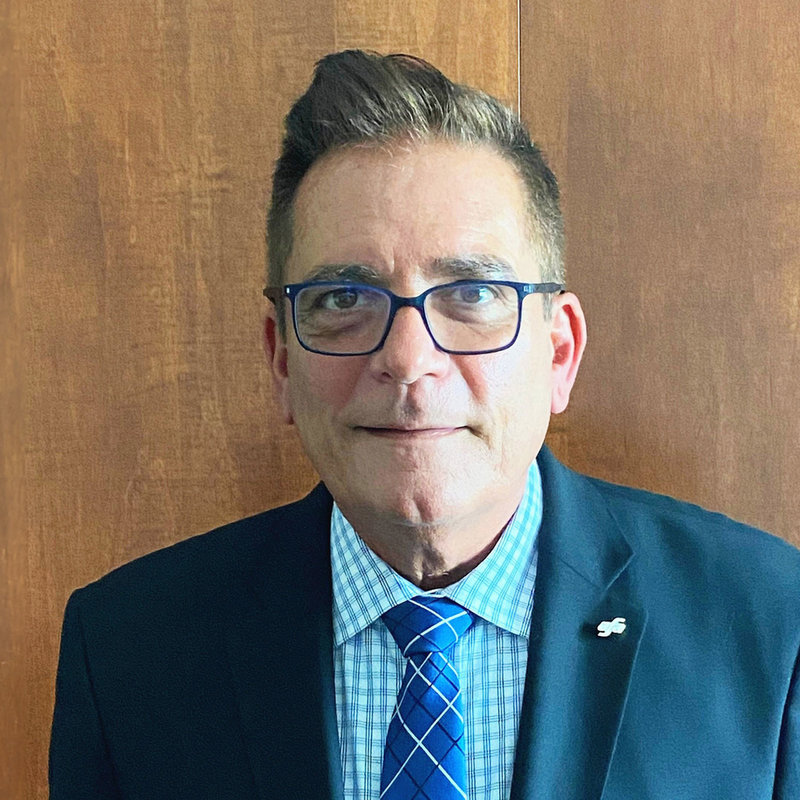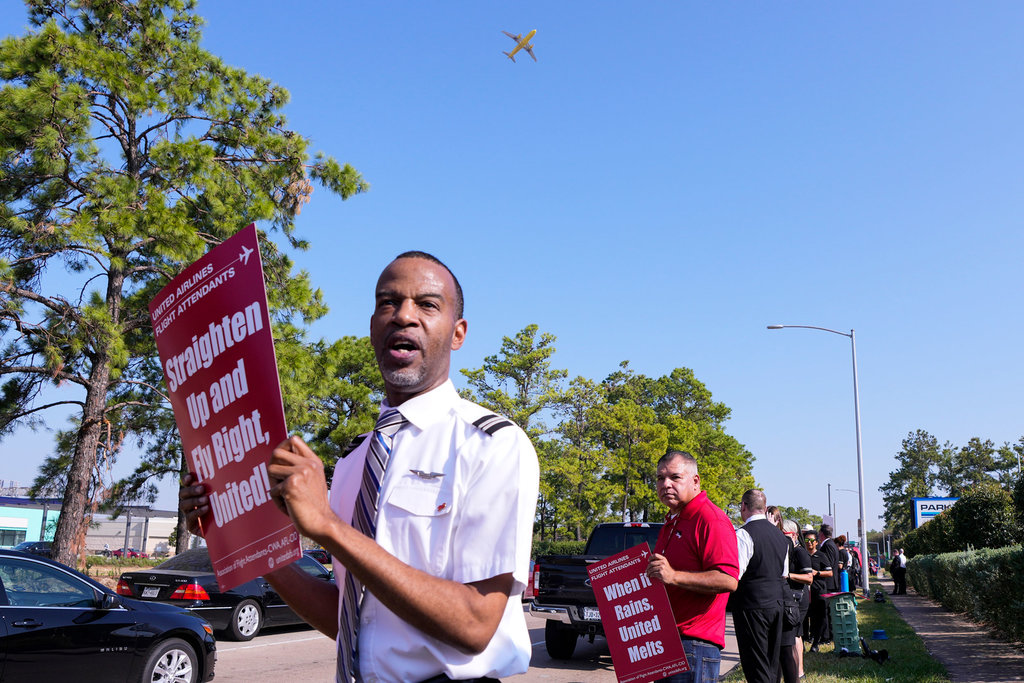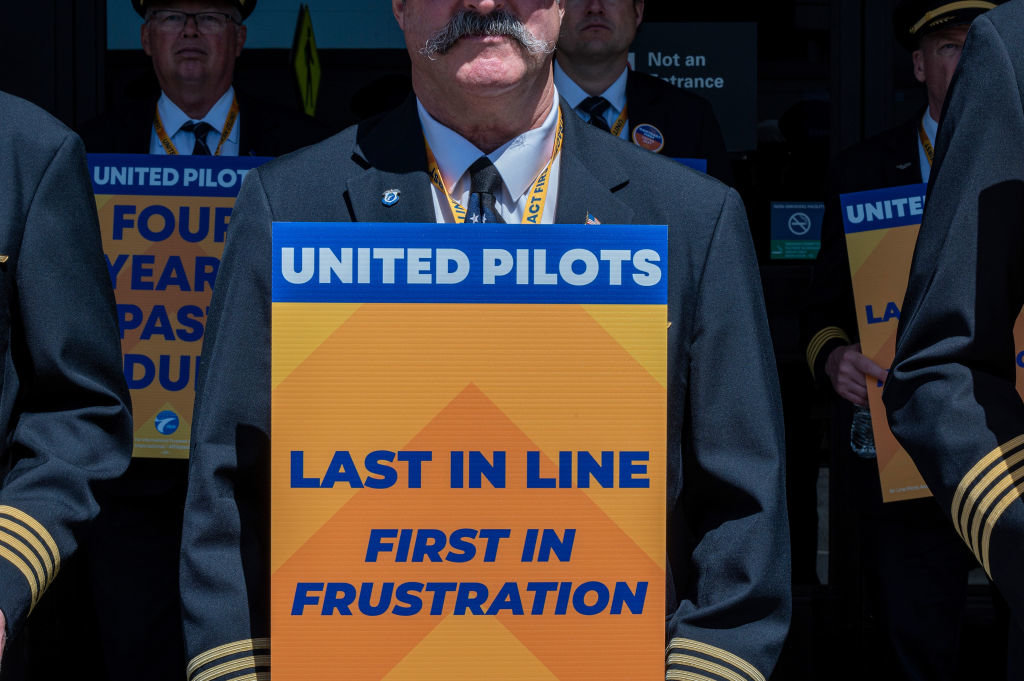Interview
“Flight attendants are very angry”: United Airlines MEC President
Noah Bovenizer speaks to Ken Diaz, MEC President for United at the AFA, about the struggle the flight attendants’ union has been facing during negotiations with the airline.

Ken Diaz, MEC President for United Airlines. Credit: AFA
The past year has been full of contract disputes and striking workers across many sectors and countries, so it’s perhaps no surprise that the aviation industry has also been impacted, with airport and airline staff alike carrying out industrial action against their employers – including flight attendants at United Airlines.
In the US, the two powerhouse airlines – American Airlines and United –have both failed to come to an agreement with their respective flight attendants’ unions, while others such as Southwest are voting on potential contracts, leading to both union groups representing American Airlines and United staff requesting the ability to take strike action from the country’s National Mediation Board (NMB).
Though the American Airlines union’s request was denied, United’s flight attendants, represented by the Association of Flight Attendants (AFA), will be picketing at a number of the airline’s airport hubs this December. The President of the Master Executive Council (MEC) for United at the AFA, Ken Diaz, explains how the negotiations have got to this point and what the problems are in the industry.
Noah Bovenizer: Can you give us a bit of background about yourself? How did you get into your current position?
Ken Diaz: I was originally a local president at John F. Kennedy International Airport in New York, US, for two terms before I was elected MEC President in 2014, and I’m currently in my fourth term as MEC President.
That means I'm part of the negotiations committee, and we negotiate with United two weeks per month. Then, during times that I'm not in negotiations, I am involved in processing grievances, which includes arbitrations and mediations, as well as interacting with the 14 local Presidents that comprise our leadership.
Noah Bovenizer: Could you explain what a flight attendants' responsibilities are for those who might not know exactly what goes into the job?
Ken Diaz: Well, I don't think everyone understands all the safety aspects of what a flight attendant does on every flight and the training that is involved in that. They're basically there predominantly for safety and then, of course, to offer the services that United provides their passengers.
These are long days that flight attendants put in, and don't forget we don't get paid from when we check in for a flight and we don't get paid in between flights, but we're still on duty to the company. So they're long, hard days, and they do it with the utmost professionalism, day in and day out.
They’re with the passengers the most of any employee group, about 80% of the time, and they are the ones that bring back the passengers to United. And at United, especially notable now that it is making record profits, we're the only employee group that still does not have a contract after two years in negotiations.

United Airlines flight attendants picket outside George Bush Intercontinental Airport as they seek a new contract with the airline on 31 August 2023. Credit: Brett Coomer/Houston Chronicle/Getty Images
Noah Bovenizer: So how have those negotiations between the AFA and United been going?
Ken Diaz: We're two years and three months into negotiations and we have not even got to the very important sections of the contract, which are reserve, scheduling, and benefits. United has been dragging these negotiations on for 27 months now, over non-economic issues. We do have seven sections of 33 that have been agreed to, but we really haven't had any of the larger conversations on the main parts of the contract.
I had approached United in September to go into an expedited mediation process with the NMB and it took them two months of back-and-forth talks with me to tell me that they didn't want any timelines on this negotiation. So that is what is leading us up to now, to file for mediation with the NMB.
Noah Bovenizer: American Airlines’ flight attendants have also failed to come to a new contract agreement yet, do you think there is a wider issue in aviation or is this just a problem with a few airlines?
Ken Diaz: I think it's an ongoing part of working under the Railway Labour Act (RLA), as contracts become amendable and for as long as the management teams can drag out these negotiations, they're saving money every month.
Our contract was amendable in August 2021 and they've now had two and a half years where they've saved money by not reaching an agreement. So, I think part of it is because we work under the RLA, and part of it is, I think, an utter disrespect for flight attendants in general, that they [United] are not negotiating the way they should in order to reach an agreement.
That's why we're putting the pressure on. I mean, flight attendants are angry, they feel disrespected, especially since we got United through the pandemic. If it wasn't for flight attendants helping them get through the pandemic, some of these airlines wouldn't be here today.
Noah Bovenizer: On that note, what have you heard from your counterparts at other unions?
Ken Diaz: Most of my contacts are with airlines based in the US. I’m in close contact with the American Airlines flight attendants’ union, I’m in close contact with TWU, which is the Southwest union, and of course, Alaska is part of AFA, so we talk regularly. We're all going through the same struggles with management teams not getting serious at the table.
Luckily, Southwest Airlines are now voting on a contract for their flight attendants, and that vote should be finalised within the next week and a half. But as for American and United, they've been dragging their feet to get to a contract with their flight attendants.

United pilots, represented by the Air Line Pilots Association International, were also in a dispute this year with United over pay, resulting in a national picket in May. Credit: David Paul Morris/Bloomberg/Getty Images
Noah Bovenizer: Aside from the contract negotiations, United has invested in areas such as its flight attendant training centre in Houston. Do you welcome these investments as benefits to the airline’s staff, or would you rather they focussed on a new contract?
Ken Diaz: Obviously we want United to be a world-class airline, so we welcome new aircraft, we welcome new clubs for our passengers, we welcome new gate space, new technology, and the new training centres. But without the investment in the flight attendants who deliver the product that United offers, it can't work. United can't work without having the flight attendant group with them.
Right now, flight attendants are very angry, they're tired of waiting for a contract and you can't have this view of giving everything on the outside, making United look so successful, and yet internally, quite frankly, the labour relations at United have never been lower than they are currently. I’ve been here 26 years and I've never seen it, internally, as bad as it is today.
Noah Bovenizer: Why do you think that is?
Ken Diaz: I have to be honest, when Oscar [Munoz] came in as United CEO a couple of years ago, he came in trying to change the culture – and I actually think he started on that. But now we have a new management team, and it's a different way of doing business internally. I hold them responsible for not taking up what Oscar started and instead going the opposite direction where all employee groups are feeling it.
We’ve talked with the other labour groups on the property, and they're all in the same mindset that they've never seen labour relations internally at United as poor as they are today.
Noah Bovenizer: The United flight attendants’ struggle is mainly based in the US, but do you think this is a global issue?
Ken Diaz: I do, but I think the labour laws in Europe are better for the labour groups than they are working under the RLA in the US. So yes, I think it's a global issue with flight attendants, but I think we're under the constraint of working under a law that was passed in 1932, which really needs to be changed for the benefit of the workers.
Our government affairs department is working with Congress to try to explain what's happening under the RLA and how flight attendants, and other labour groups, are working under an archaic law that hasn't changed in close to 100 years.
But, as with anything, that's a slow process, so we have to keep the pressure up internally and that's why we'll be picketing worldwide on 14 December at all the airports where flight attendants are based, including London.
Noah Bovenizer: What would you say to anyone reading this?
Ken Diaz: I just want to say that United Airlines needs flight attendants to be on board and we want to be on board, as a company that's growing as fast as we're growing right now, but without reaching a contract with the flight attendants, that's just not happening, and it's not good for United if they have labour strife internally.